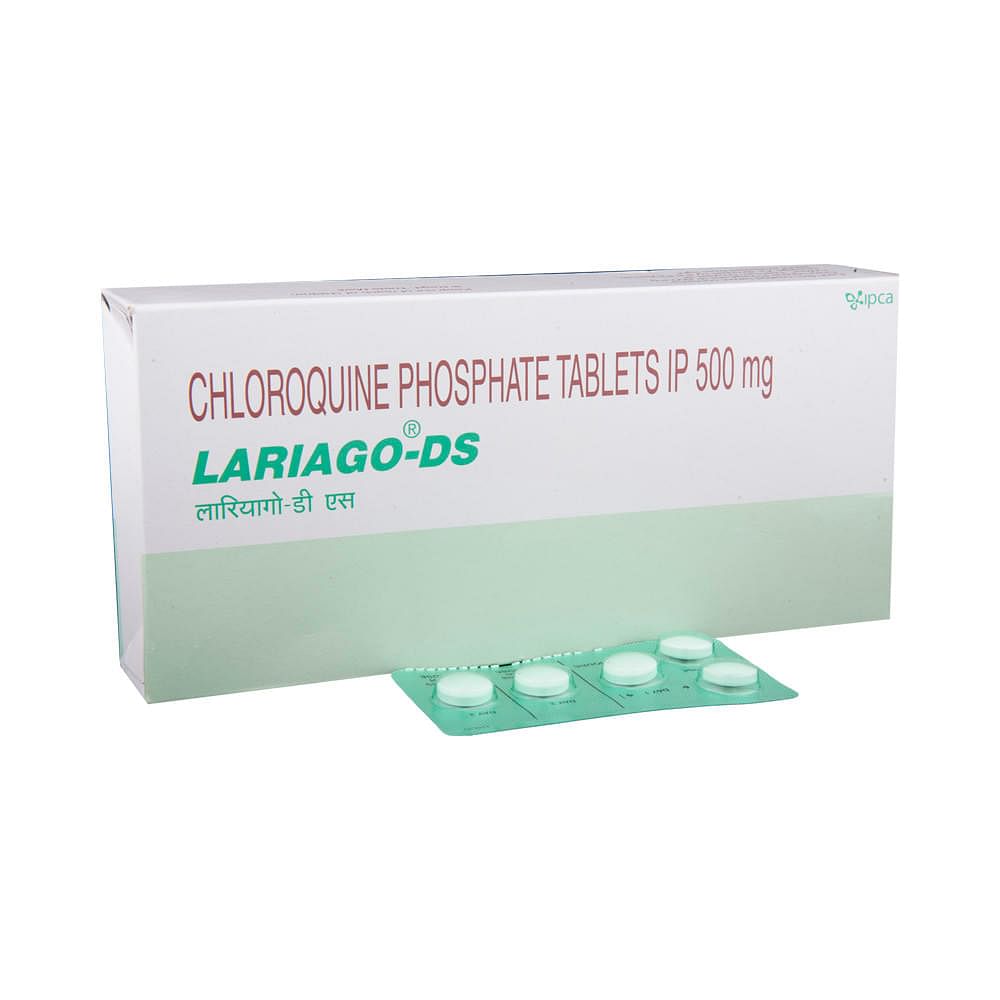
Apequin 500mg Tablet
Manufacturer
Apex Laboratories Pvt Ltd
Salt Composition
Chloroquine (500mg)
Key Information
Short Description
Apequin 500mg Tablet is an antiparasitic medicine, used for the prevention and treatment of malaria.
Dosage Form
Tablet
Introduction
Apequin 500mg Tablet should be used in the dose and duration as advised by your doctor. Take it with food to decrease the risk of stomach upset. Do not skip any doses and finish the full course of treatment even if you feel better. Stopping it early can result in treatment failure and increase the side effects too. Do not take a double dose to make up for a missed dose. Simply take the next dose as planned. Take measures to reduce the chance of being bitten by mosquitoes like using insect repellent creams on parts of your body not covered by clothing. Spray mosquito repellent to kill any mosquitoes that may have entered rooms in spite of screening. Wear light-colored and covered clothing when you are outside after sunset. Some people may experience rash, headache, dizziness, and vomiting as side effects of this medicine. It may also cause stomach pain, diarrhea, loss of appetite, and nausea. Please consult your doctor if these side effects persist for a longer duration.
Directions for Use
Take this medicine in the dose and duration as advised by your doctor. Swallow it as a whole. Do not chew, crush or break it. Apequin 500mg Tablet is to be taken with food.
Safety Information
Side Effects
rash headache dizziness vomiting stomach pain diarrhea loss of appetite nausea
Alcohol Warning
It is not known whether it is safe to consume alcohol with Apequin 500mg Tablet. Please consult your doctor.
Breastfeeding Warning
Apequin 500mg Tablet is safe to use during breastfeeding. Human studies suggest that the drug does not pass into the breastmilk in a significant amount and is not harmful to the baby.
Pregnancy Warning
Apequin 500mg Tablet may be unsafe to use during pregnancy. Although there are limited studies in humans, animal studies have shown harmful effects on the developing baby. Your doctor will weigh the benefits and any potential risks before prescribing it to you. Please consult your doctor.
Interacting Medicines
Leflunomide Mefloquine Penicillamine Digoxin
How it works
Apequin 500mg Tablet is an antiparasitic medication that treats malaria. It works by increasing the levels of haeme in the blood, a substance toxic to the malarial parasite. This kills the parasite and stops the infection from spreading.
Quick Tips
Wear light-colored and covered clothing when you are outside after sunset. Use insect repellent creams or sprays on parts of your body not covered by clothing. Spray to kill any mosquitoes that may have entered rooms despite screening.
Related Medicines

Lariago-DS Tablet

Falcin 500mg Tablet

CQ EC 500mg Tablet

Loroquin 500mg Tablet

Onatril 500mg Tablet

Cadiquin 500mg Tablet

Malgo DS 500mg Tablet

Leoquin EC 500mg Tablet

Match Q 500mg Tablet

Resochin DS 500mg Tablet
Frequently asked questions
What is Apequin 500mg Tablet and what is it used for?
Apequin 500mg Tablet is an anti-malarial medicine that is used to treat and prevent malaria, a disease caused by the Plasmodium parasite transmitted through mosquito bites.
How long does it take for malaria symptoms to show?
Symptoms of malaria can develop as quickly as 7 days after being bitten by an infected mosquito. Typically, the incubation period ranges from 7 to 18 days, during which time individuals may experience flu-like symptoms such as fever, muscle pains, vomiting, headaches, and diarrhea.
Is it safe to use Apequin 500mg Tablet for a long period of time?
If your doctor has prescribed you Apequin 500mg Tablet for an extended duration, it's essential to have regular eye check-ups. Chloroquine, the active ingredient in this medicine, may cause blurred vision, difficulty reading (due to words disappearing), and retinopathy – a rare eye condition – if taken over an extended period.
Who should not use Apequin 500mg Tablet?
Inform your doctor about any pre-existing psoriasis before taking Apequin 500mg Tablet, as it may exacerbate this condition. This is crucial for proper management and to prevent adverse reactions.
What are the side effects of Apequin 500mg Tablet?
Common side effects include stomach pain, nausea, vomiting, and headaches. These symptoms can often be mitigated by taking the medicine with food.
Can chloroquine cure coronavirus (COVID-19)?
There is insufficient medical evidence to confirm that chloroquine is effective in treating COVID-19. Consequently, it's not advisable to take Apequin 500mg Tablet without consulting your doctor for the treatment of COVID-19.
Can I take antacids along with Apequin 500mg Tablet?
When taking an antacid, ensure a gap of at least 4 hours between the two medications to avoid potential interactions and adverse effects.
What is the difference between hydroxychloroquine and chloroquine?
Hydroxychloroquine and chloroquine were both initially approved for malaria treatment. However, chloroquine tends to cause more side effects than hydroxychloroquine. As a result, hydroxychloroquine is now more commonly used today. Additionally, hydroxychloroquine has been approved to treat rheumatoid arthritis and lupus, whereas chloroquine is not.
How can you prevent yourself from getting malaria?
Preventing malaria involves taking certain precautions such as covering arms and legs to avoid mosquito bites, using a mosquito net, and applying insect repellent. It's also essential to consult your doctor about the necessity of taking malaria prevention tablets if you are at risk. If you do require these tablets, ensure you take them according to the recommended dosage and complete the full treatment course.


